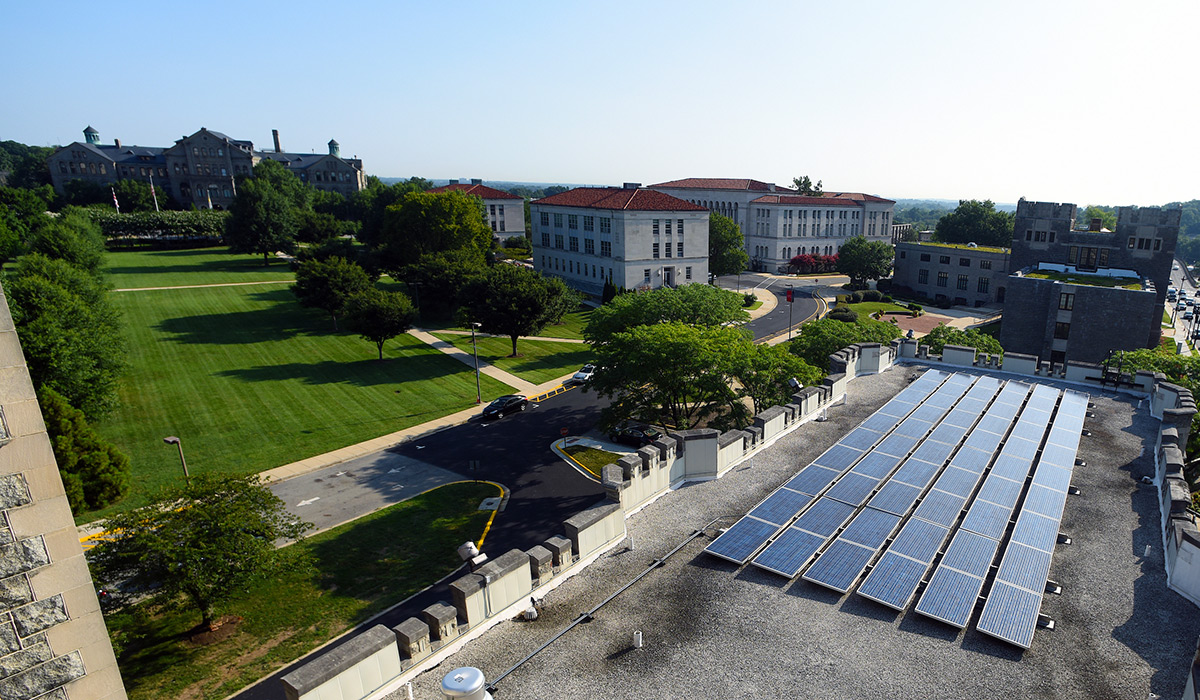

Catholic University was recently recognized for its dedication to sustainability by two college ranking websites.
Catholic University was included in the Princeton Review’s Guide to Green College: 2021 Edition. Institutions were given Green Rating scores based on their sustainability-related policies, practices, and programs. Catholic University’s score earned it a spot on the list of 416 Green Colleges.
College Consensus ranked the University as 21st on a list of the Best Green Colleges in the United States, in recognition of CatholicU’s embrace of renewable energy.
The University “has been recognized by the EPA for its astounding embrace of renewable energy, including purchasing a full 100% of its energy from renewable sources. In addition to its purchasing, [Catholic University] is Washington’s largest producer of solar energy, with the largest solar array in the city, including thousands of panels and 70-space solar-powered parking structure for recharging electric vehicles,” the website notes. The University’s “official stance on sustainability draws on traditional Catholic values of stewardship for the earth, a significant article of the church’s faith, and Catholic University of America serves as an inspiration for other colleges as one of the best green colleges in the U.S.”
“It’s great to see this national recognition,” said Alexandra Harry, assistant director of sustainability initiatives for the University. “The acknowledgements from College Consensus and the Princeton Review demonstrate that the University offers a distinct contribution to the national environmental stewardship conversation within the context of the University’s Catholic mission and identity.”
Harry also noted that the recognitions align perfectly with the release of the University’s 5-year sustainability plan, which was announced in October during Campus Sustainability Month. As part of the plan, Catholic University hopes to achieve significant reductions in carbon emissions, energy, waste diversion, and water use.